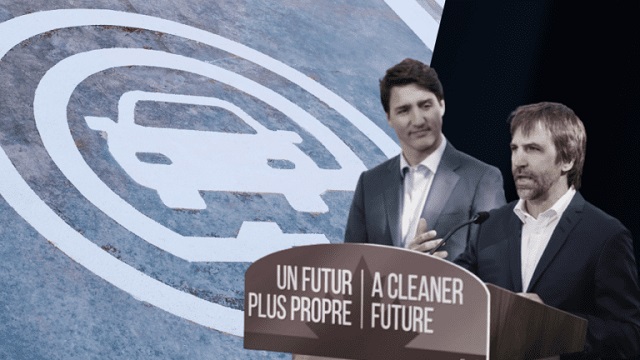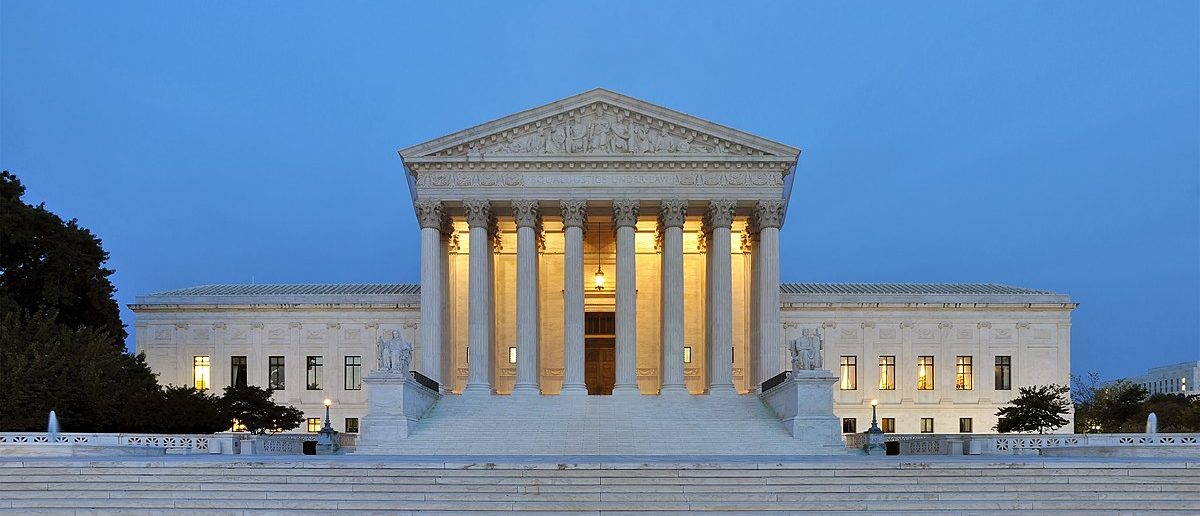Business
The CBC is a government-funded giant no one watches

This article supplied by Troy Media.
 By Kris Sims
By Kris Sims
The CBC is draining taxpayer money while Canadians tune out. It’s time to stop funding a media giant that’s become a political pawn
The CBC is a taxpayer-funded failure, and it’s time to pull the plug. Yet during the election campaign, Prime Minister Mark Carney pledged to pump another $150 million into the broadcaster, even as the CBC was covering his campaign. That’s a blatant conflict of interest, and it underlines why government-funded journalism must end.
The CBC even reported on that announcement, running a headline calling itself “underfunded.” Think about that. Imagine being a CBC employee asking Carney questions at a campaign news conference, while knowing that if he wins, your employer gets a bigger cheque. Meanwhile, Conservative Leader Pierre Poilievre has pledged to defund the CBC. The broadcaster is literally covering a story that determines its future funding—and pretending there’s no conflict.
This kind of entanglement isn’t journalism. It’s political theatre. When reporters’ paycheques depend on who wins the election, public trust is shattered.
And the rot goes even deeper. In the Throne Speech, the Carney government vowed to “protect the institutions that bring these cultures and this identity to the world, like CBC/RadioCanada.” Before the election, a federal report recommended nearly doubling the CBC’s annual funding. Former heritage minister Pascale St-Onge said Canada should match the G7 average of $62 per person per year—a move that would balloon the CBC’s budget to $2.5 billion annually. That would nearly double the CBC’s current public funding, which already exceeds $1.2 billion per year.
To put that in perspective, $2.5 billion could cover the annual grocery bill for more than 150,000 Canadian families. But Ottawa wants to shovel more cash at an organization most Canadians don’t even watch.
St-Onge also proposed expanding the CBC’s mandate to “fight disinformation,” suggesting it should play a formal role in “helping the Canadian population understand fact-based information.” The federal government says this is about countering false or misleading information online—so-called “disinformation.” But the Carney platform took it further, pledging to “fully equip” the CBC to combat disinformation so Canadians “have a news source
they know they can trust.”
That raises troubling questions. Will the CBC become an official state fact-checker? Who decides what qualifies as “disinformation”? This isn’t about journalism anymore—it’s about control.
Meanwhile, accountability is nonexistent. Despite years of public backlash over lavish executive compensation, the CBC hasn’t cleaned up its act. Former CEO Catherine Tait earned nearly half a million dollars annually. Her successor, Marie Philippe Bouchard, will rake in up to $562,700. Bonuses were scrapped after criticism—but base salaries were quietly hiked instead. Canadians struggling with inflation and rising costs are footing the bill for bloated executive pay at a broadcaster few of them even watch.
The CBC’s flagship English-language prime-time news show draws just 1.8 per cent of available viewers. That means more than 98 per cent of TV-viewing Canadians are tuning out. The public isn’t buying what the CBC is selling—but they’re being forced to pay for it anyway.
Government-funded journalism is a conflict of interest by design. The CBC is expensive, unpopular, and unaccountable. It doesn’t need more money. It needs to stand on its own—or not at all.
Kris Sims is the Alberta Director for the Canadian Taxpayers Federation
Troy Media empowers Canadian community news outlets by providing independent, insightful analysis and commentary. Our mission is to support local media in helping Canadians stay informed and engaged by delivering reliable content that strengthens community connections and deepens understanding across the country.
Business
Senator wants to torpedo Canada’s oil and gas industry

From the Fraser Institute
Recently, without much fanfare, Senator Rosa Galvez re-pitched a piece of legislation that died on the vine when former prime minister Justin Trudeau prorogued Parliament in January. Her “Climate-Aligned Finance Act” (CAFA), which would basically bring a form of BDS (Boycott, Divestment, and Sanctions) to Canada’s oil and gas sector, would much better be left in its current legislative oblivion.
CAFA would essentially treat Canada’s oil and gas sector like an enemy of the state—a state, in Senator Galvez’ view, where all values are subordinate to greenhouse gas emission control. Think I’m kidding? Per CAFA, alignment with national climate commitments means that everyone engaged in federal investment in “emission intensive activities [read, the entire oil and gas sector] must give precedence to that duty over all other duties and obligations of office, and, for that purpose, ensuring the entity is in alignment with climate commitments is deemed to be a superseding matter of public interest.”
In plain English, CAFA would require anyone involved in federal financing (or federally-regulated financing) of the oil and gas sector to divest their Canadian federal investments in the oil and gas sector. And the government would sanction those who argue against it.
There’s another disturbing component to CAFA—in short, it stacks investment decision-making boards. CAFA requires at least one board member of every federally-regulated financial institution to have “climate expertise.” How is “climate expertise” defined? CAFA says it includes people with experience in climate science, social science, Indgineuous “ways of knowing,” and people who have “acute lived experience related to the physical or economic damages of climate change.” (Stacking advisory boards like this, by the way, is a great way to build public distrust in governmental advisory boards, which, in our post-COVID world, is probably not all that high. Might want to rethink this, senator.)
Clearly, Senator Galvez’ CAFA is draconian public policy dressed up in drab finance-speak camouflage. But here’s what it would do. By making federal investment off-limits to oil and gas companies, it would quickly put negative pressure on investment from both national and international investors, effectively starving the sector for capital. After all, if a company’s activities are anathema to its own federal regulators or investment organs, and are statutorily prohibited from even verbally defending such investments, who in their right minds would want to invest?
And that is the BDS of CAFA. In so many words, it calls on the Canadian federal government to boycott, divest from, and sanction Canada’s oil and gas sector—which powers our country, produces a huge share of our exports, and employs people from coast to coast. Senator Galvez would like to see her Climate-Aligned Finance Act (CAFA) resurrected by the Carney government, whose energy policy to-date has been less than crystal clear. But for the sake of Canadians, it should stay dead.
Automotive
Opposition Conservatives fail in attempt to “Pull the Plug” on Carney’s Electric Vehicle Mandate

From Conservative Party Communications
After a Lost Liberal Decade of rising costs and slow growth, Mark Carney wants you to think his government has moved on from Justin Trudeau’s failed policies.
Unfortunately for Canadians, Carney has no interest in scrapping one of his predecessor’s most reckless and costly ideas: a zero-emissions vehicle (ZEV) mandate starting next year that will ultimately ban Canadians from buying gas-powered cars by 2035.
As the required percentage of ZEV sales increases each year, the government wants to force manufacturers and importers to buy costly credits of up to $20,000 for every EV they are short of the Liberals’ quota – a huge expense that will ultimately be passed on to, and paid by Canadian consumers.
That’s why Conservatives have introduced a motion to end this harmful scheme, ensuring Canadians can continue to buy the kind of car they need at a price they can afford.
EVs are great for many families, who should always be free to purchase the vehicle of their choice. But for many Canadians – who live in cold environments or travel long distances – they can be practically useless, especially without the infrastructure to power them.
One government report estimated that changes to Canadian infrastructure required to support a transition to ZEVs could cost up to $300 billion by 2040. On top of the costs already imposed on manufacturers and buyers, this policy will require billions in new tax dollars and government debt.
No wonder one 2024 survey found two thirds of Canadians find the 2035 target is unrealistic.
As unjust tariffs threaten an automotive sector which contributes billions to our GDP, the Liberals continue to put their elitist, top-down ideology ahead of the livelihoods of hundreds of thousands of proud Canadian workers.
While Carney talks about change, Conservatives are here to deliver. That’s why we’re fighting to repeal the ZEV mandate, scrap the industrial carbon tax and cancel Liberal fuel standards. We trust Canadians – not Ottawa’s Liberal elite – to make the best decisions for themselves and their families.
It’s time to put Canadians back in the driver’s seat.
-

 Alberta2 days ago
Alberta2 days agoCentral Alberta MP resigns to give Conservative leader Pierre Poilievre a chance to regain a seat in Parliament
-

 Alberta2 days ago
Alberta2 days agoCalls for a new pipeline to the coast are only getting louder
-

 Daily Caller16 hours ago
Daily Caller16 hours agoUnanimous Supreme Court Ruling Inspires Hope For Future Energy Project Permitting
-

 Alberta1 day ago
Alberta1 day agoUnified message for Ottawa: Premier Danielle Smith and Premier Scott Moe call for change to federal policies
-

 Alberta2 days ago
Alberta2 days agoAlberta pro-life group says health officials admit many babies are left to die after failed abortions
-

 Daily Caller2 days ago
Daily Caller2 days ago‘Not Held Hostage Anymore’: Economist Explains How America Benefits If Trump Gets Oil And Gas Expansion
-

 Censorship Industrial Complex1 day ago
Censorship Industrial Complex1 day agoJordan Peterson reveals DEI ‘expert’ serving as his ‘re-education coach’ for opposing LGBT agenda
-

 Business2 days ago
Business2 days agoRhetoric—not evidence—continues to dominate climate debate and policy


